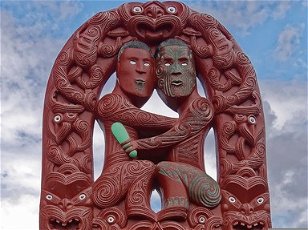Kia ora koutou katoa. Nau mai, haere mai ki toku kemu - Hello everyone and welcome to my quiz on te reo Maori, the beautiful language of Aotearoa - New Zealand .
Average, 10 Qns, Waitakere,
Apr 02 25
 Many Maori words are used as part of everyday New Zealand English. If you were to visit New Zealand, would you know what people were talking about? Take this quiz and find out.
Many Maori words are used as part of everyday New Zealand English. If you were to visit New Zealand, would you know what people were talking about? Take this quiz and find out. |
|
|
|
 Quick Question
Quick Question = Top 5% Rated Quiz,
= Top 5% Rated Quiz,
 Top 10% Rated Quiz,
Top 10% Rated Quiz,
 Top 20% Rated Quiz,
Top 20% Rated Quiz,
 A Well Rated Quiz
A Well Rated Quiz
· All questions, answers, and quiz content on this website is copyright FunTrivia, Inc and may not be reproduced without permission. Any images from TV shows and movies are copyright their studios, and are being used under "fair use" for commentary and education.